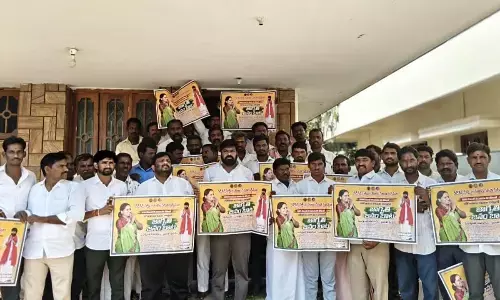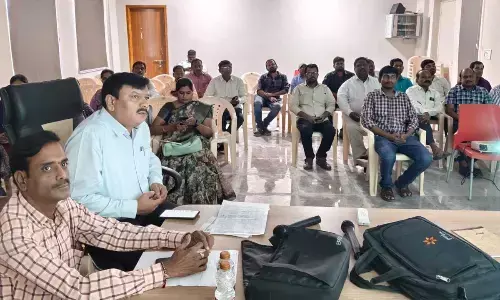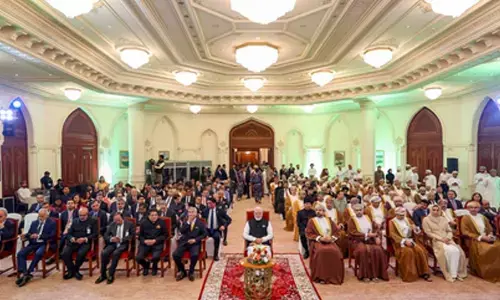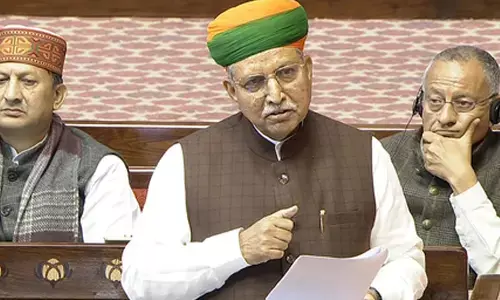Nellore Masuri brand value devalued by deceptive traders
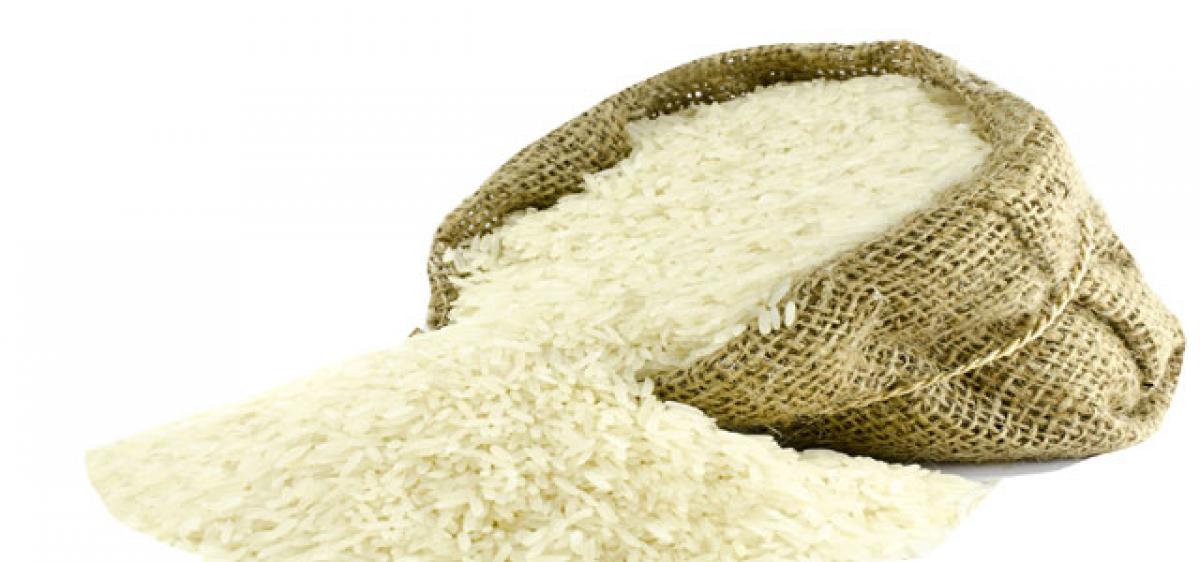
Nellore Masuri, NLR-34449, a local popular variety being grown in major chunk of lands in the district, has failed to get its own brand, despite its inherent unique features, due to malpractices by traders.
Nellore Masuri, NLR-34449, a local popular variety being grown in major chunk of lands in the district, has failed to get its own brand, despite its inherent unique features, due to malpractices by traders. This variety which is similar in quality to BPT 5204 Samba Masuri, is blast resistant and slim in structure, apart from have other attributes like being a short-duration crop, non-lodging, saline resistant, and suitable for any season.
- Nellore Masuri is having good qualities of slenderness and traders mix it with much popular BPT varieties for good returns
- Scientists say local farmers are showing interest on short-term duration crops and they were developing varieties to suit local conditions adding richness of BPT
The price of BPT 5204 Samba Masuri rice is Rs. 19,000-20,000 for Putti (one putti is equal to 850 kg of paddy) and that of Nellore Masuri is only Rs. 12,300-12,400 per putti. But, since consumers cannot identify the quality and difference, traders are exploiting the similarity in appearance by mixing both the varieties and selling Nellore rice as BPT brand at the price of the latter.
“Nellore Masuri is a popular local brand but no trader sells it. They simply mix 70 pc of Nellore rice with 30 pc of other BPT Masuri varieties grown across the state and sell at higher rates. These traders cheat the farmers by paying paltry sum for the Nellore Masuri crop by pointing out its quality,” says Kommi Singaiah Naidu from Chejarla mandal. According to him such malpractices were resorted to by rice traders syndicate.
Short duration crops gained momentum in the district due to decreasing water sources, and the inability to manage blast disease especially in the region. Apart from this changing food habits and preference for cooking quality and slimness also contributed to this trend. Farmers in Nellore district have gradually been shifting to new short duration crops for getting quick yield and good return.
Nellore, Chittoor, Kadapa with Regional Agricultural Research Station (RARS) at Tirupati, comes under Southern Zone where annual rainfall varies from 700-1000 mm. This area constitutes around 12.6 pc of rice area of the state. Nellore is famous for thick, long and long-duration varieties such as BCP developed during the olden days. Now farmers have almost discontinued such crops due to it being a long duration crop. In fact, the district has three agriculture seasons - Kharif, Rabi and Early Kharif - unlike the other districts which have only two seasons - Kharif and Rabi.
According to agriculture experts, farmers have to bear brunt of blast disease which highly impacts BPT varieties and only locally suitable varieties have to be cultivated. Nellore is famous for Molagolukulu varieties which were developed by RARS, Tirupati, some 60 years ago. Now they have completely vanished due to difficulties with long duration crops and huge requirement of water.
“NLR-34449 has been developed in 2009 similar to BPT variety which can sustain tough weather situations and withstand pests and diseases of the region. Now, farmers are preferring only high yielding varieties with 120-130 days crop duration,” said Dr P Ramesh Babu, Principal Scientist, Regional Agriculture Research Station, Nellore.
Even though BPT varieties were much-welcomed by the users in the state, they are not suitable for local conditions and scientists developed NLR 145 (Swarnamukhi), MT 1001, MT 1010, NLR30491 (Bharani), NLR 33358 (Somasila) and NLR 40024 (Swetha) for local needs. All these varieties are short-duration and some like Swarnamukhi were not being preferred by users and local farmers to convert them to boiled rice for exporting to other parts of southern peninsula.
‘In fact, these local Masuri varieties are having high glycemic index when compared to old BCP varieties. Consumer interest is changing towards slenderness and high polished varieties. Now, we are developing new varieties according to taste similar to Molagolukulu coupled with slimness of BPT with aromatic nature,” said Dr Ramesh Babu.
By P V Prasad









